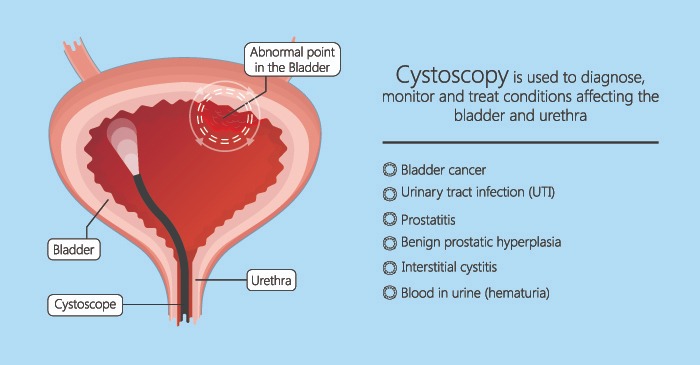Cystoscopy: Expertise of Dr. Yasir Iqbal
A Clear View Inside the Bladder and Urethra


When is Cystoscopy Recommended?
Cystoscopy is commonly performed to investigate and manage conditions such as:
Blood in the urine (hematuria)
Recurrent urinary tract infections (UTIs)
Frequent or painful urination
Difficulty urinating or urinary retention
Bladder tumors or stones
Urethral strictures or blockages
Types of Cystoscopy
Flexible Cystoscopy: Usually done in the clinic under local anaesthesia. A thin, bendable cystoscope is used, making the procedure more comfortable.
Rigid Cystoscopy: Typically done in the operating room under regional or general anaesthesia. It allows for therapeutic procedures like biopsy, stone removal, or tumour resection.
Cystoscopy is a diagnostic and therapeutic procedure that allows your urologist to examine the inside of the bladder and urethra using a specialized instrument called a cystoscope. This thin, tube-like device is equipped with a camera and light, enabling a detailed view of the urinary tract in real-time.
Why Choose Us for Cystoscopy?
Performed by experienced urologists using advanced equipment
Painless and quick recovery
State-of-the-art diagnostic support
On-site lab and imaging facilities for faster diagnosis
Are There Any Risks Associated With Cystoscopy?
Although if you visit the right doctor, like the specialists at Doctor Clinic, Delhi, the risks of cystoscopy go down. But, some of the complications associated with the treatment include;
Infections - Very rarely, cystoscopy can causes infections in the urinary tract by introducing germs.
Bleeding - It can sometimes cause blood in the urine, but again, serious bleeding rarely occurs.
Pain - There are chances you may experience abdominal pain and a burning sensation.
